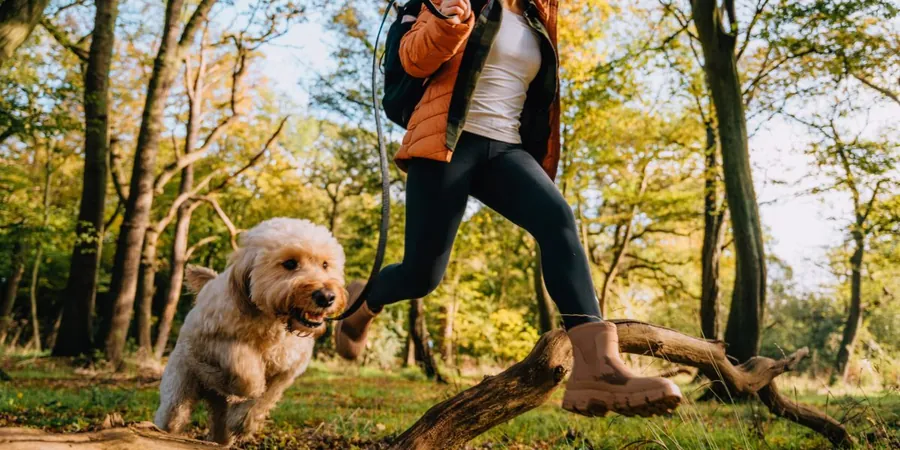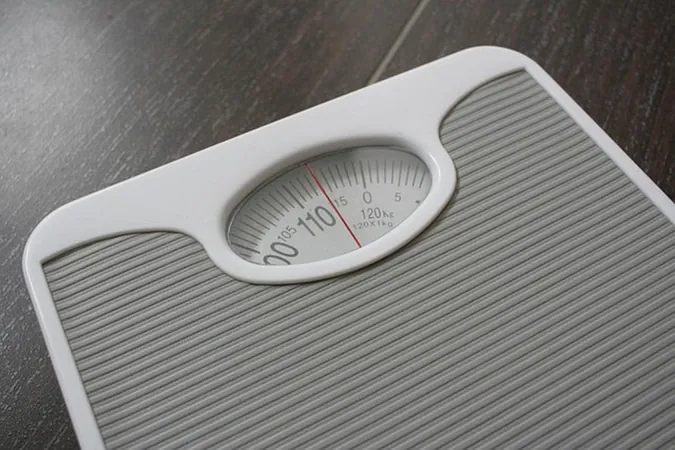
Walking Your Way to a Longer Life: New Study Reveals Up to 11 Extra Years!
2024-11-14
Author: Nur
Walking Your Way to a Longer Life
According to a recent study, the secret to a longer life could be as simple as walking more! Shockingly, research reveals that a significant portion of the population isn’t getting enough exercise. Only 26% of men, 19% of women, and 20% of adolescents adhere to the recommended physical activity guidelines set by the Department of Health and Human Services, which call for 150 to 300 minutes of moderate-intensity physical exercise per week. If you fall into this sedentary category, you might be missing out on incredible health and longevity benefits.
Published in the British Journal of Sports Medicine, the study analyzed data from the CDC's National Center for Health Statistics, focusing on over 36,000 Americans aged 40 and older. By assessing their physical activity levels from the National Health and Nutritional Examination Survey (2003-2006), researchers uncovered a startling connection between activity levels and life expectancy.
To make comparisons clearer, researchers converted various forms of moderate to vigorous exercise into equivalent walking minutes. They divided participants into four distinct activity levels:
- The least active, averaging 50 minutes of walking daily
- The next group at 80 minutes
- The third group at 110 minutes
- The most active who walked the equivalent of 160 minutes a day, nearly three hours!
Lead author Lennert Veerman, a professor at Griffith University's School of Medicine, highlighted the potential gains for those in the least active group who—by merely increasing their walking—could extend their lives significantly. The study suggests that if the entire cohort aged 40 and over matched the activity levels of the top 25%, they could anticipate an average increase in life expectancy of 5.3 years, stretching their lifespan to around 84 years. Astoundingly, those at the lowest activity level could gain a remarkable 11 additional years of life by upping their exercise game!
The findings clearly reveal that the greatest health benefits await those who are currently inactive. Veerman notes that even just one extra hour of walking could translate to six more hours of life for these individuals. Currently, those classified in the least active group generally only engage in essential movements from daily activities, which lack the more vigorous exercise necessary for optimal health.
The ramifications of inactivity are worrisome: should the entire population age 40 and over mimic the sedentary lifestyle of the least active 25%, the loss in life expectancy could amount to a drastic 5.8 years, resulting in a lifespan of around 73 years.
The good news? Even small increases in activity can lead to substantial health benefits. Moving from the least active to the second group can add 0.6 years to your life expectancy, while advancing to the third group could contribute an additional 3.5 years. However, those already engaged in higher activity might not see as considerable enhancements in longevity.
The U.S. Physical Activity Guidelines underline the various advantages of regular physical activity beyond merely extending life. Exercise not only improves overall health but also enhances sleep quality, aids daily tasks, boosts mental health, and increases energy levels.
For those in car-dependent environments or with limited exercise routines, don't despair! Any increase in movement matters. Here are some simple ways to incorporate more walking and activity into your day—what the experts call "incidental physical activity":
- Always opt for the stairs instead of the elevator.
- Use public transportation to squeeze in walks to and from transit stops.
- Alternate between sitting and standing with a movable desk.
- Take frequent short walks around the office for water, coffee, or breaks.
Veerman emphasizes that "little things can make a big difference over the years." So, if you’re looking to boost your health, add years to your life, or simply feel more energetic, the answer might be just a walk away! Start today—your future self will thank you!


 Brasil (PT)
Brasil (PT)
 Canada (EN)
Canada (EN)
 Chile (ES)
Chile (ES)
 España (ES)
España (ES)
 France (FR)
France (FR)
 Hong Kong (EN)
Hong Kong (EN)
 Italia (IT)
Italia (IT)
 日本 (JA)
日本 (JA)
 Magyarország (HU)
Magyarország (HU)
 Norge (NO)
Norge (NO)
 Polska (PL)
Polska (PL)
 Schweiz (DE)
Schweiz (DE)
 Singapore (EN)
Singapore (EN)
 Sverige (SV)
Sverige (SV)
 Suomi (FI)
Suomi (FI)
 Türkiye (TR)
Türkiye (TR)